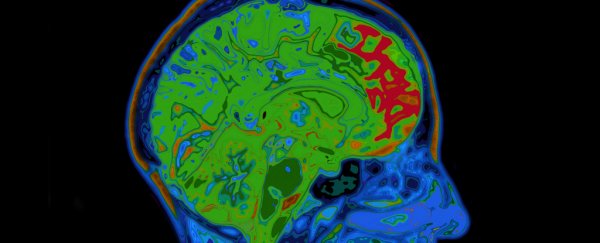Yeast infections are a relatively common occurrence these days, and are easily treatable. But new research has just revealed a tentative link between the Candida fungus and schizophrenia in men, and memory impairment in mentally ill women, which suggestes that this kind of infection might have a longer-lasting impact on the body than previously thought.
To be clear, this is very early work, so we can't say as yet whether yeast infections cause mental illness, but it's definitely a link worth further investigation.
"It's far too early to single out Candida infection as a cause of mental illness or vice versa," said lead researcher Emily Severance from Johns Hopkins University School of Medicine. "However, most Candida infections can be treated in their early stages, and clinicians should make it a point to look out for these infections in their patients with mental illness."
The yeast-like Candida fungus is naturally occurring in the human gut, where it does a whole lot of good. But it can overgrow in warm, moist environments to cause itching, burning, thrush, and sexually transmitted yeast infections.
These yeast infections can be prevented by eating less sugar, avoiding unnecessary antibiotics, and maintaining good hygiene, but they still happen a lot. Almost 75 percent of adult women in the US report having had a vaginal yeast infection in their lifetime, and thrush infections in the mouth and throat are common among babies.
A growing body of research has been suggesting lately that conditions such as schizophrenia might be related to immune system problems, and so, given how widespread they are, the team decided to investigate whether that was the case with yeast infections.
To do this, they tested 808 people - some who had schizophrenia or bipolar disoder, and some without a history of mental illness - for antibodies against Candida albicans.
After taking into account factors like age, race, socioeconomic status, and medications, they found that 26 percent of men with schizophrenia had antibodies against Candida (suggesting they'd been infected at some point), compared with only 14 percent of the control males without any mental illness.
That same link wasn't found in females, but when they asked participants to complete a range of cognitive tests, the women with schizophrenia or bipolar disorder who had a history of yeast infection had far worse memory scores compared to those who'd never been infected.
For example, the tests were scored out of 100, and women with schizophrenia who had the highest levels of Candida antibodies scored an average of 11 points lower than the controls.
"Although we cannot demonstrate a direct link between Candida infection and physiological brain processes, our data show that some factor associated with Candida infection, and possibly the organism itself, plays a role in affecting the memory of women with schizophrenia and bipolar disorder, and this is an avenue that needs to be further explored," said Severance.
There are some big limitations to this study - for starters, the team wasn't able to eliminate the influence all the external factors that influence yeast infection, such as diet and overall immune health. They also couldn't figure out from the presence of antibodies when or where a yeast infection occurred, or how severe it was.
But this is just the first step - the team will now investigate cause-and-effect relationships between Candida and mental health in mice, before continuing to figure out what's happening in humans.
And there are already some hints in other research as to how the link might work. Last year, researchers found that gut bacteria could play a role in anxiety and depression.
"Because Candida is a natural component of the human body microbiome, yeast overgrowth or infection in the digestive tract, for example, may disrupt the gut-brain axis," said Severance. "This disruption in conjunction with an abnormally functioning immune system could collectively disturb those brain processes that are important for memory."
We have a long way to go before we fully understand how our immune system plays a role in our mental health, but hopefully this line of investigation might take us a little bit closer.
The research has been published in npj Schizophrenia.
